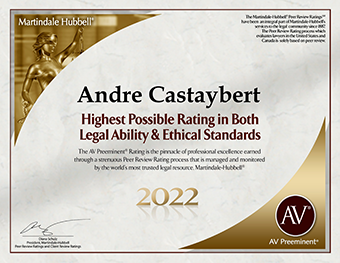February 13, 2019 — Artificial Intelligence (“AI”) has officially infiltrated the art world. With the rise of AI, it is becoming common for artists to collaborate with AI to create new works and to supplement AI art systems with their catalogs. Such endeavors have raised compelling questions about authorship for the purposes of copyright ownership and protection.
In response to the increasing application of AI in the art world, Harvard Cyberlaw Clinic Instructors Jessica Fjeld and Mason Kortz, in collaboration with Sarah Schwettmann and SJ Klein of MIT, took it upon themselves to create license templates to outline the scope of these projects, guarantee recognitions for their contributions, and ensure the continued progression of AI art systems for future use and development.
Read the full article and view the license agreements here.
For Information on how CASTAYBERT PLLC can assist you with your Art Law matter, visit our Art Law practice page here.







